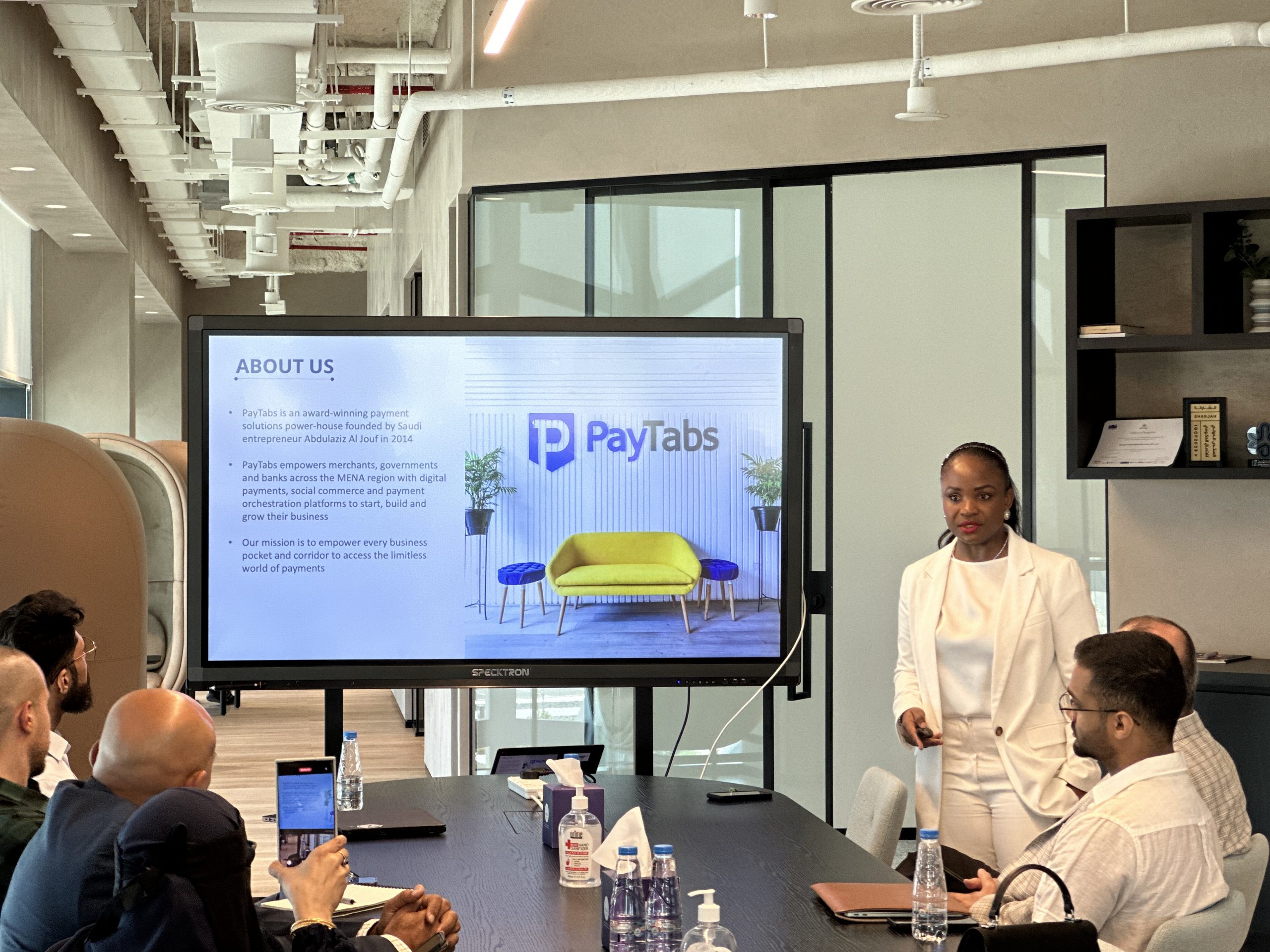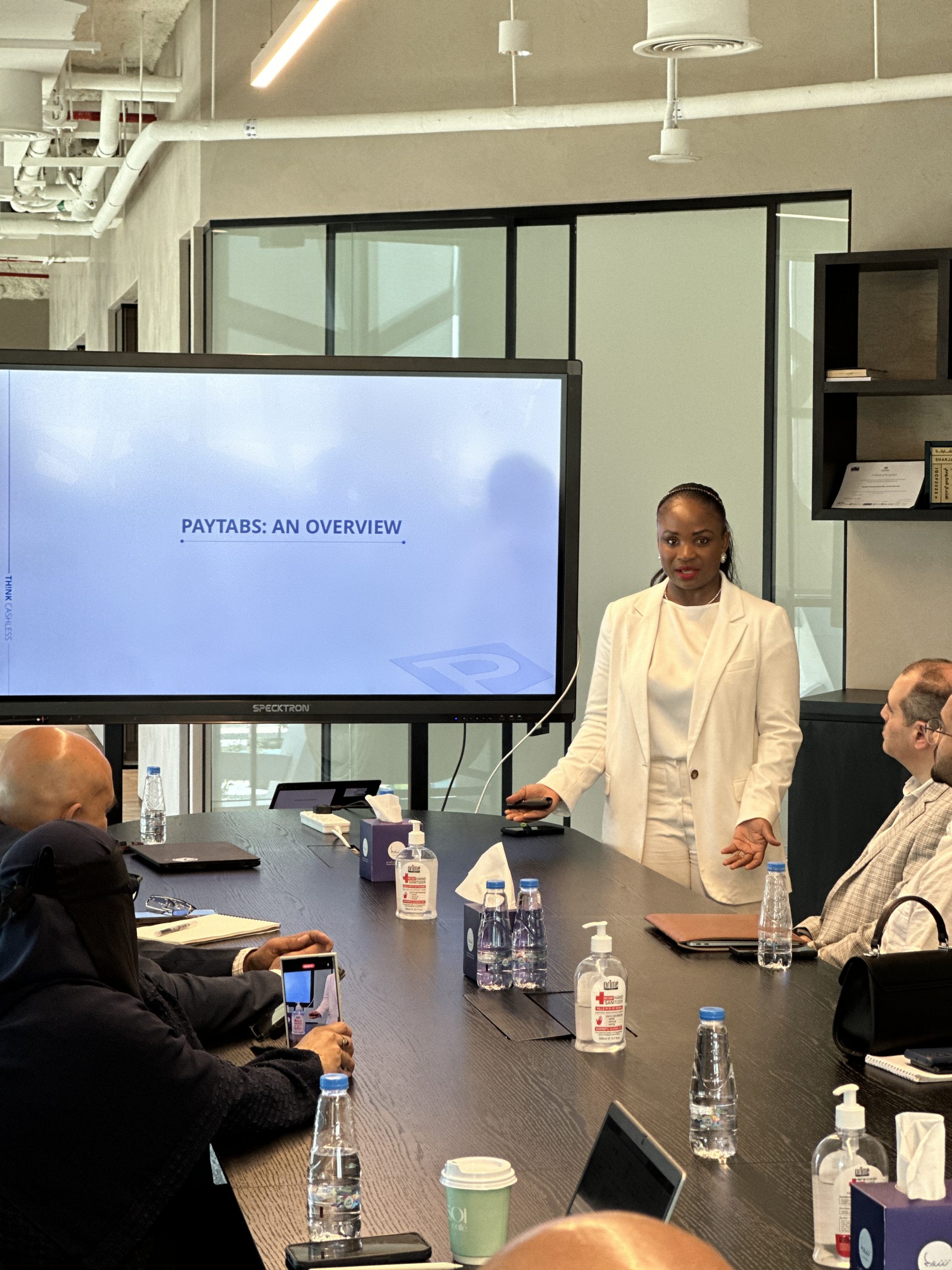Rev Up Your Ecommerce Sales for Jordan National Day

Jordan National Day is just around the corner and the entire country is ready for celebrations and festive revelry. This also means a surge in shopping for personal and domestic use as well as gifting purposes. So, as an ecommerce business owner, you might be looking for ways to boost your Jordan National Day sales figures. And you are in luck. In 2023, around 76% of the country’s population had active mobile connections and internet penetration was pegged at 88%. By 2027, the number of users in the digital commerce market is poised to increase to 4.8 million and the ecommerce market volume is expected to hit USD 293.6 million. Hobby and leisure, electronics, fashion, and furniture and homeware are among the most popular ecommerce sectors in the country currently.
However, to compete with other players, draw more traffic, drive more conversions, and thrive in this dynamic landscape, you need to employ the right strategies. Let’s delve into them.
Tips to Improve Jordan National Day Sales
The modern consumer in Jordan looks primarily for these four things when they go for online shopping – speed, security, efficiency, and flexibility. So, here is what you can do to offer them a frictionless and enjoyable experience:
-
Easy Website Navigation
Make sure your ecommerce site’s interface is simple and easy to use for all. Customers should be able to search, sort, filter quickly and add items to the cart without any hassle. Ensure product descriptions, prices, care instructions, etc. are easy to spot and understand. If there are special offers on certain categories or products, make sure they are clearly visible and hard to miss. Give site visitors the option to view everything in Arabic too, to build trust, cultural familiarity, and a local vibe.
-
Personalized Marketing
Use AI and sophisticated data analytics tools to capture, store, and analyze customer data. This way, you can personalize marketing campaigns in line with their past browsing, shopping, and payment behaviors. Offer customized recommendations while they are on your site or upsell or cross-sell products to boost the order volume. Personalization will enhance shopper engagement too.
-
Immersive AR and VR Experiences
By employing augmented reality and virtual reality, you can enable shoppers to try out different products before making a purchase decision. These advanced technologies can help them interact realistically with products and gauge the suitability, efficiency, or aesthetics. AR and VR can boost engagement, conversion, and satisfaction.
-
Glitch-free Checkout
Adopt an ecommerce payment gateway that makes the checkout experience fast, simple, secure, and efficient. A provider like PayTabs can help you offer a variety of local payment methods to win over customers in Jordan. Payment solutions for online stores in the country usually range from conventional ones like cards and bank transfer to digital wallets and payment links. Depending on the nature of your business and target audience, you can offer all or some of the modes, so that shoppers have ample flexibility and can complete digital transactions without any fuss.
-
Robust Security
Equip your site with layered security measures to protect customer data and encrypt the same, so that hackers cannot steal or misuse sensitive information. Since the National Day will witness increased activity across ecommerce sectors, be extra cautious. Pick a payment gateway in Jordan that keeps all transaction details safe and employs smart authentication mechanisms.
-
Integration with Social Commerce
Integrate your ecommerce site with trendy social media platforms to help more customers discover, explore, and buy your products easily. This is especially a great way to attract millennials and Gen Z shoppers. To receive secure online payments in Jordan through social media channels, just pick a gateway provider that can make the process fast and seamless.
-
Seamless Last-mile Delivery
Leverage advanced logistics software to make sure products are delivered on time and in shipshape. Last-mile delivery plays a key role in customer satisfaction, repeat purchase, and loyalty. So, use the right tools to plan the most efficient routes, save time and cost, streamline operations, track delivery agents, and obtain customer feedback as well.
Get Ready for Jordan National Day
Jordan’s digital commerce market is likely to clock a transaction value of USD 6.75 billion by 2027. To capitalize on this upward trend as well as the upcoming National Day rush, you need to strengthen every aspect of your ecommerce business – from the moment a shopper visits your site to the moment they receive their orders. So, keep the above pointers in mind and choose a Payment orchestration platform like PayTabs that facilitates stress-free and cost-effective payment gateways integration. This way, you can accept multiple payment modes, route and process transactions efficiently, and improve the overall customer experience.
Key Considerations for KSA Businesses Adopting Payment Orchestration

In 2023, Fintech in Saudi Arabia was estimated to have a market size of USD 39.04 million. By 2028, it is likely to shoot up to USD 69.23 million. This upward trend is driving the increased adoption of digital payments too. In fact, KSA witnessed a sharp uptick in digital transactions in 2022 (valued at SR1.6 trillion) from 2021 (valued at SR6 billion). And with the country’s ecommerce revenue poised to grow at an 11.08% rate from now till 2029, digital transactions will be more widespread than ever. In such a futuristic environment, adopting payment orchestration is the way to go for merchants like you. Read on to know why and how you can pick the right platform.
Why Do You Need Payment Orchestration?
Fast, secure, and efficient digital payment is the key to a smooth checkout experience. And with omnichannel payments on the rise, you need to manage and track all transactions in one place while minimizing operational expenses. Payment orchestration platforms can help you with that. Such a platform offers a unified software layer that brings together multiple banks, acquirers, payment service providers, gateways, and fraud detection services.
From the validation of payment requests to their routing to fund settlement, Saudi Arabian payment orchestration platforms automate and handle everything end-to-end. Since you get to leverage a single platform to connect with different payment processing solutions, you can enable multiple payment methods, scale and expand easily, and enhance customer satisfaction.
Considerations While Adopting Payment Orchestration
While there are various payment orchestration providers in Saudi Arabia, zeroing in on the right one requires you to consider the following:
- Transaction routing: Go for a platform that offers a high payment acceptance rate. It should be able to route every transaction as efficiently and speedily as possible to the right processor, to simplify checkout and boost conversions.
- Integration: The right orchestration platform will simplify payment gateway integration, no matter how many gateways are involved. The platform itself will be easy to integrate with your current and prospective payment or business systems.
- Customization: Since every business has distinct needs, choose a platform that aligns with yours closely. It should comply with the standards of the industry in which you operate. You should be able to optimize your payment flow for risk, performance, and cost by accessing suitable tools. A platform with an intuitive user experience can also help you build, tweak, and duplicate payment workflows.
- Performance: Ensure the orchestration platform is capable of handling your present transaction volume without bottlenecks. It should be scalable enough to handle future volumes easily. Ask if the platform has Artificial Intelligence or Machine Learning capabilities to boost performance and revenue.
- Payment methods: It is important to offer your customers ample choice and flexibility in ecommerce payment solutions. It helps in building trust and improves your brand’s value. So, check if the orchestration platform offers the payment methods preferred by your customers. You should also be able to add more methods (including international ones) in the future if required.
- Currency support: If you are planning to expand to new geographies, you should be able to accept the local currencies of different countries. In that case, opt for a platform that supports multiple currencies and ensures hassle-free exchange. It is also easy to establish brand presence and grow the customer base when people in other countries get to pay in a currency with which they are familiar.
- Security: Protecting sensitive customer and transaction data is essential if you want to thrive as an online business. So, before picking a Saudi Arabian payment orchestration platform, make sure it is PCI-DSS compliant and has robust measures against data breaches and cyberattacks. This will help you minimize chargebacks.
- Data analytics: Besides offering complete visibility into your payment system, the platform should allow you to analyze data in different ways, apply various filters, and visualize trends and patterns with charts. It should generate data-backed reports that help you make informed decisions and identify your payment system’s strengths and weaknesses.
- Pricing: Choose a payment orchestration platform that fits your budget or is competitively priced. The different aspects of its pricing model should be transparent and you should know how the model will change as your business grows. Transaction fees should be affordable too.
- Support: The digital payment landscape is evolving constantly, so you need a payment orchestration provider who can offer expert handholding when you are just getting started. Even when you get used to the platform, support should be readily available whether you experience sudden technical glitches or have questions related to performance, payment modes, processors, etc.
Get Ready to Orchestrate Payments
Besides keeping the above considerations in mind, research and compare multiple payment orchestration platforms before making a choice. Talk to other merchants in the same industry to seek suggestions and understand their experience. Going through reviews and testimonials of different providers will give you a fair idea about each of them too. Make sure to test any platform you like through a demo session, so you can gauge its suitability for your business. In KSA, opting for a reputed orchestration platform provider like PayTabs can also make your life easy and eliminate the pain of research and uncertainty.
Implementing Payment Orchestration for UAE SaaS Providers

UAE’s SaaS market is all set to clock revenue of USD 1.29 billion by 2028, after growing at a 11.99% rate annually. In other words, the SaaS landscape is going to be highly competitive in the coming years, which means it won’t be enough to just build a robust product. As a provider of SaaS solutions, you also need a payment orchestration platform that simplifies, secures, and automates subscription and recurring payments. Otherwise, a suboptimal payment experience, involving frequent declined transactions or unavailability of preferred payment methods, can drive customers to switch to other providers.
Payment orchestration for UAE SaaS providers can help you integrate and manage multiple gateways, processors, acquirers, and banks on a single platform. Essentially, you can optimize and streamline transactions end-to-end, save time, increase operational efficiencies, and rest assured about timely fund settlement. Let’s delve deeper into the benefits of payment orchestration for SaaS in UAE and how to ensure effective implementation.
Payment Orchestration Benefits for SaaS Providers
These are the key benefits of adopting payment orchestration for your SaaS business:
- Flexibility and Options: You can integrate with multiple payment gateway APIs via an orchestration platform. Integrating payment methods of different kinds is another advantage, which means customers can choose to pay through debit and credit cards, digital wallets, bank transfers, and so on. So, you can accept various forms of payments through various channels, which means more flexibility for your business and more options for your customers. This is bound to improve your brand image, reduce churn, and boost customer loyalty.
- Greater Acceptance Rate: Payment orchestration platforms automatically route every transaction to the most suitable processor, so that there are minimal instances of failed or declined transactions. If one processor is unable to handle the payment request, the latter is sent to another processor, and the process continues till the transaction gets authorized. All of this happens in seconds and improves customer satisfaction too.
- International Support: If you are venturing into foreign markets, your payment gateway selection will depend on what is popular locally. Moreover, you will need to offer localized payment methods so that customers in other countries can trust your business and find it easy to transact. You should be able to accept payments in multiple currencies as well and the exchange to the home or base currency should happen automatically and easily. The right orchestration platform can ensure all of that and help you expand beyond the UAE without worries.
- Fraud Prevention: As a SaaS provider, you need to keep sensitive data absolutely secure against cyberattacks. Payment orchestration platforms can take care of that as they feature the latest security protocols, advanced algorithms for fraud detection and prevention, and are PCI-DSS compliant.
- Cost Optimization: Since orchestration platforms consolidate operations as well as integrations with multiple gateways, processors, and methods, you save a lot of money in transaction fees.
- Superior Customer Experience: There is nothing like a smooth checkout experience to make customers happy. With an orchestration platform, no matter where a customer is or what kind of device they are using, making payments is frictionless, safe, and quick.
Now that you know about the benefits of adopting payment orchestration for SaaS in UAE, let’s see how the implementation works.
Payment Orchestration Implementation Best Practices
Here are the things to keep in mind when you decide to implement payment orchestration for your SaaS business:
- Assess Requirements: To decide on an orchestration platform with the right features, identify the distinct challenges and needs of your existing payment system. Usually, going with a reputed provider like PayTabs can make your transition to an improved payment system smooth and seamless.
- Plan Integration: Once you select a platform, chalk out an integration plan that includes milestones, timelines, and the allocation of staff and resources.
- Setup and Test: After you install the required software, set up the orchestration platform’s infrastructure. Test the same thoroughly to make sure the integration is complete and works. You can also carry out the implementation in phases before deploying the platform at full scale.
- Train your Staff: All payment orchestration platforms require you to train your staff and familiarize them with the new system, workflows, processing of transactions, and troubleshooting.
- Monitor Constantly: Once you go live with the platform, track its performance closely and consistently, so you can spot and resolve issues on time.
- Optimize as Needed: Analyze the performance of the platform, detect areas of improvement, and collate user feedback, so you can optimize the new payment system accordingly.
Transform Your SaaS Business with Payment Orchestration
The demand for SaaS products is going to rise in the UAE, as the statistics mentioned in the beginning indicate. Hence, as a provider, make the most of it by adapting to evolving customer preferences when it comes to payment systems. Adopting a payment orchestration platform and implementing it methodically can simplify life for both you and your customers. You can offer them multiple payment options, route transactions more effectively, reduce costs, prevent frauds, accept payments safely and punctually and even derive actionable data-driven insights to make better decisions in the future.
How Paymes Events can Boost Event Planning Business Revenue

The market for event tickets in the UAE is expected to rake in revenue of USD 267.10 million by 2028 after growing at a steady pace and the number of users is likely to hit 2.1 million. As per event industry trends, music and sports events are likely to be especially popular. So, if you are running an event planning business, now is a good time to attract and convert your target audience in a strategic manner. And since the ticket booking process plays a pivotal role in determining whether a potential customer will go ahead with the purchase or give up halfway, you need to make it as simple, safe, and efficient as possible. Event, an innovative feature from PayTabs’ Paymes, can show you the way. Here’s how to use it and how Paymes Event can help boost your revenue.
Get Started with Paymes Event
Whether you are selling workshops, seminars, concerts, exhibitions, or shows, you need payment integration solutions that allow customers to locate and pay for tickets quickly and easily. This is the reason why Paymes Event is just what you are looking for, as it turns ticket booking into a single-page experience. Getting started takes just a few steps:
- Sign up with Paymes by providing necessary details. You will usually need to supply your bank account details, trader certificate, and Emirates ID as documentation. Expats need to provide their passport and visa details too.
- List events along with images, locations, and time slots. Images play a crucial role in grabbing eyeballs and giving customers a quick peek into what to expect. For online events, you can provide the joining link instead of location.
- Start selling tickets and get the list of participants on a single file post sale.
- With Paymes, you can also sell monthly and annual tickets at attractive prices.
Now, let’s see how using Paymes Event in the UAE is one of the best strategies for event planning businesses.
Boost Revenue with Paymes Event
Paymes Event can not only enhance your revenue, but also benefit your business in other ways:
- Easy Payments: Customers can pay by simply scanning a QR code or clicking on a secure link. It will not only make the experience frictionless and fast for them, but you will also receive the revenue securely.
- Zero Paperwork: By taking the entire event listing and payment process online, you won’t have to worry about storing and managing physical documents. Data will be safely stored on the Paymes platform, making it easy for you to access and study the same in the future. Zero paperwork also means lower carbon footprint, which will create a positive impression on customers.
- Data Security: Advanced encryption and robust security measures will ensure that no transaction is vulnerable to cyberattacks or frauds. Both you and the customers will have the peace of mind necessary for participating in online business.
- Improved Conversion: As an event planning business, driving customers from the consideration to decision-making stage depends on how easy you make it for them to explore events, make a choice, and buy the tickets. While the quality of events surely matters, how you present them is also important. Paymes Event makes it simple by displaying your listed events with vital details in a neat manner and customers can even filter them based on different parameters if required. Once they make a choice, payment takes just a few seconds. Hence, the overall customer satisfaction improves, boosting the conversion rate.
- Affordable: Using Paymes Event is highly cost-effective and allows you to maintain the profit margin you desire. No matter how big or small your business is, this platform can help you scale and thrive.
- Enhanced Revenue: Revenue optimization is easy with Paymes Event as you can convert more, sell more, and receive payments on time. In fact, you get notified about upcoming payments as well, which means you can predict the future financial health of your business.
- Data-backed Decision-making: With Paymes Event, you get to collect the data of participants for any particular concert, workshop, lecture, or show. By analyzing the same, you can get an idea about customer preferences, purchase behavior, and their budget. This can help you tailor marketing materials strategically in the future based on the type of customer and reap more revenue.
Make the Most of Paymes Event
The event landscape in the UAE is on a roll currently, which means you need a powerful competitive edge as an event planning business. So, signing up with Paymes is one of the smartest moves you can make. Not only will customers love the experience, convenience, and flexibility, but you will be able to sell more tickets than ever, maintain a healthy cash flow, and grow your revenue fast. Affordable fees and minimal documentation imply it is easy to get started with Paymes Event and enjoy the desired profitability.




